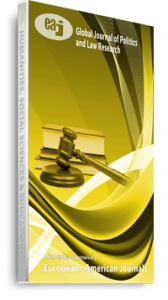This paper examines the constitutional and alongside political dynamics associated with the Sidama nation’s official and sustained demand to exercise the right to establish their own regional state and the repressive response of the ruling regime in post-1991 Ethiopia’s federal system. The 1995 Ethiopian constitution defines Ethiopia as a federal polity and provides for the unconditional right to self-determination including secession for the various ethnonational groups as an organizing principle. The most important component of this right is the right to self-administration, and the central precept of this right is exercised through the establishment of one’s regional state. After promising this right to every ethnonational groups, the constitution, however, established only nine ethno-linguistically demarcated regions most of which are delineated based on predominant ethnic identity. The constitution also allowed for other groups who do not have their region to establish their own regional state at “any time”. The most explicit exception to regional arrangement based on ethno-linguistic identity has been the case of Southern Nations, Nationalities and Peoples Regional State (SNNPRS) which is comprised of over 56 extremely different ethnic groups and formed by a forced merger of five previously autonomous regions. As a result, there are some inherent paradoxes in the federal setup where some groups with small population and territory were allowed their own regional state. Whereas on the other extreme, the Sidama, the fifth most populous nation, whose population goes well over 5 million, and with also long history of struggle against oppression, with viable economic capacity, and with the experience of autonomous provincial existence and administrative bureaucracy under previous regimes is denied separate statehood thereby relegated to zonal status. The forced dismantling of its autonomous regional state which existed for brief period until 1994 and subsequent suppression and rejection of their official demand led them to live in a continued political discontent. This paper finds out that despite a persistent quest for regional statehood through constitutionally sanctioned procedures, their quest is not properly addressed, and instead, the way in which it is handled led to repressive state response and serious human rights violations. Drawing on the experience of Sidama people, it argues that the arbitrary suppression of genuine demands for the exercise of collective right contradicts the raison d’etre of federalism and its principles, defeats the supremacy clause of the constitution, and makes the said right dysfunctional. Therefore, the paper suggests that the genuine demand of the people should be addressed based on the constitutional principles which in turn helps make the federal system responsive; and it also calls for determined and vigilant effort on the part of the concerned people in the exercise of their rights in way that it makes the right effective.
Keywords: Ethiopia, discontents, federation, regional-statehood, self-determination, sidama

